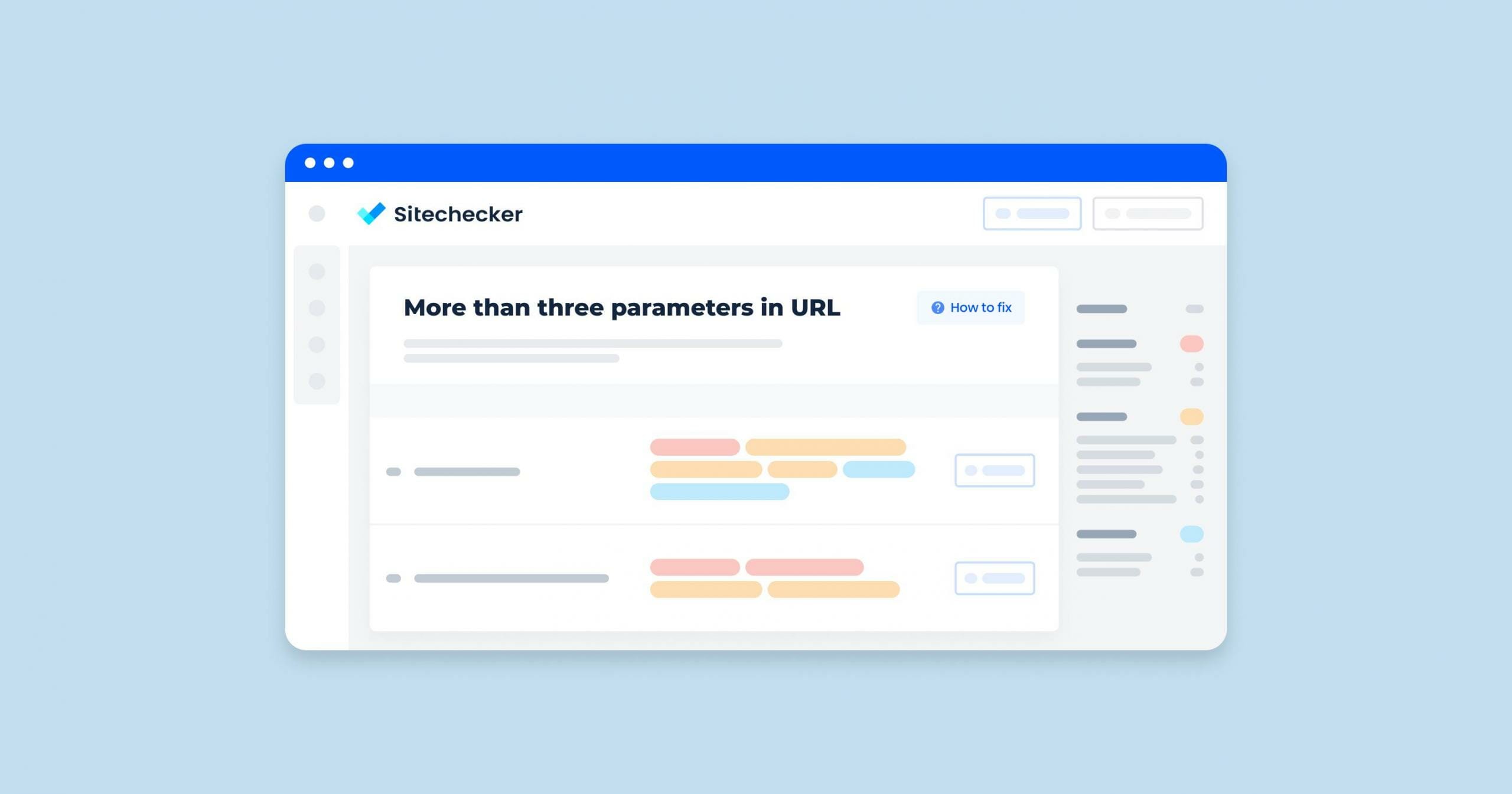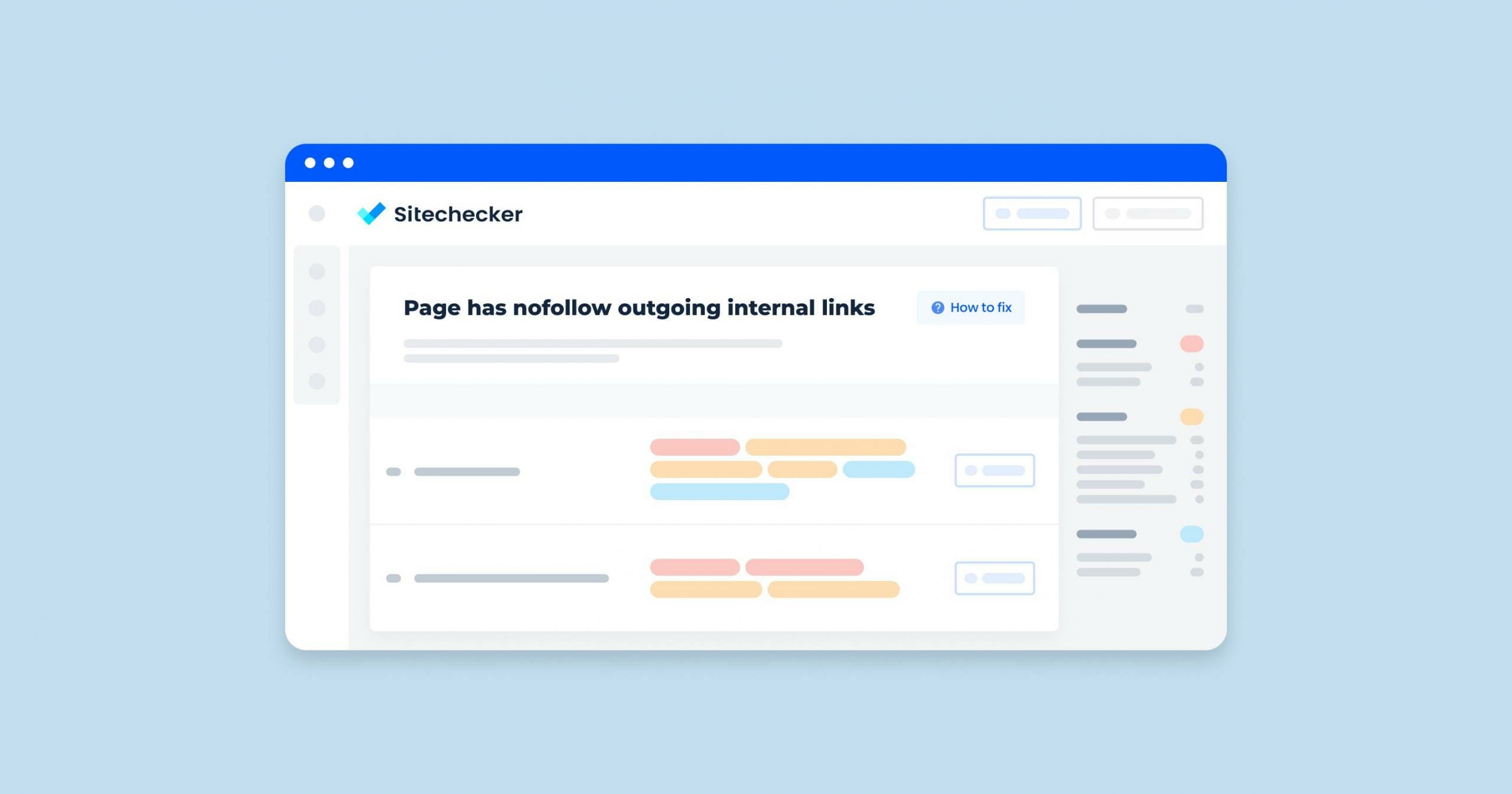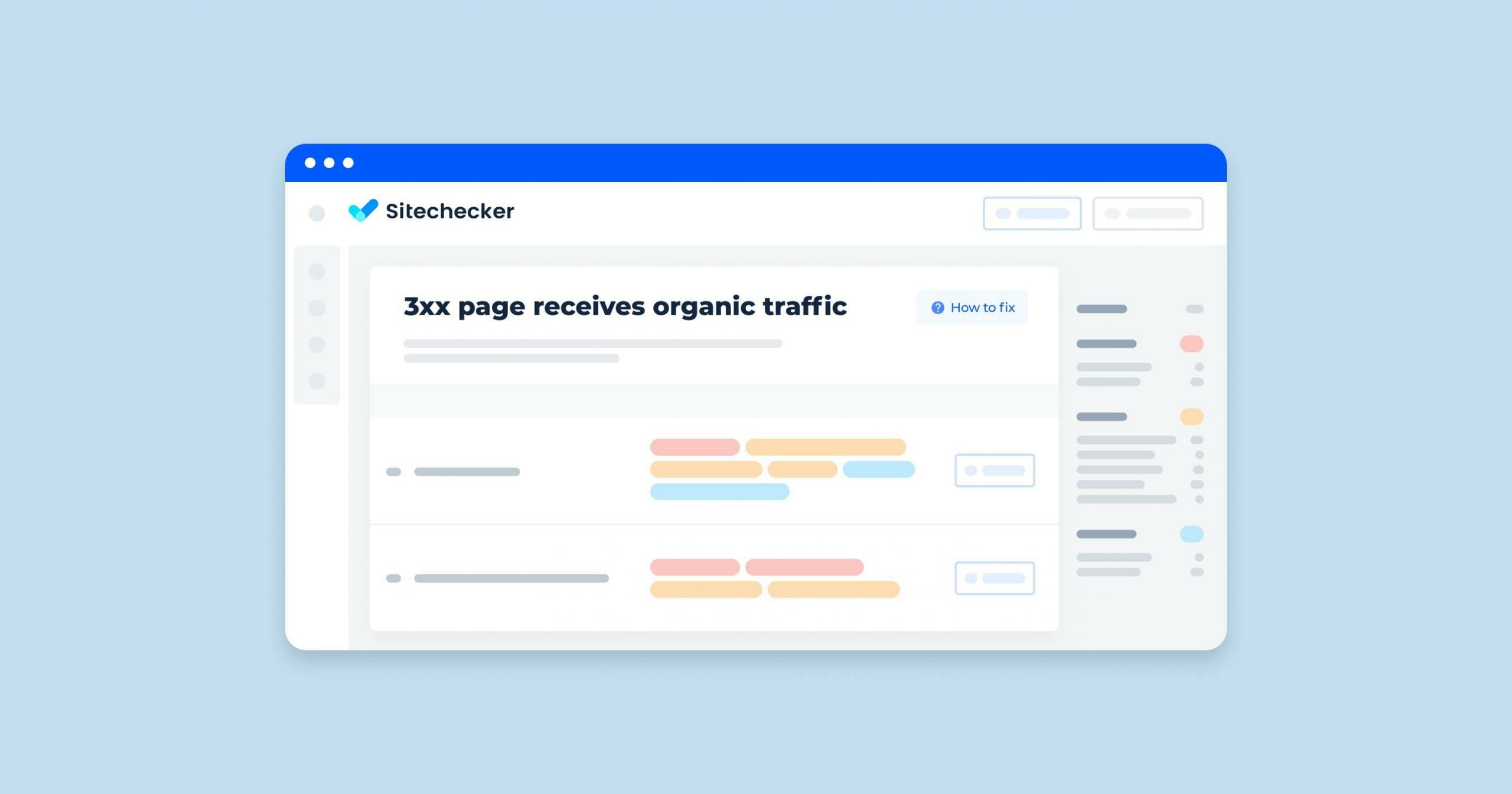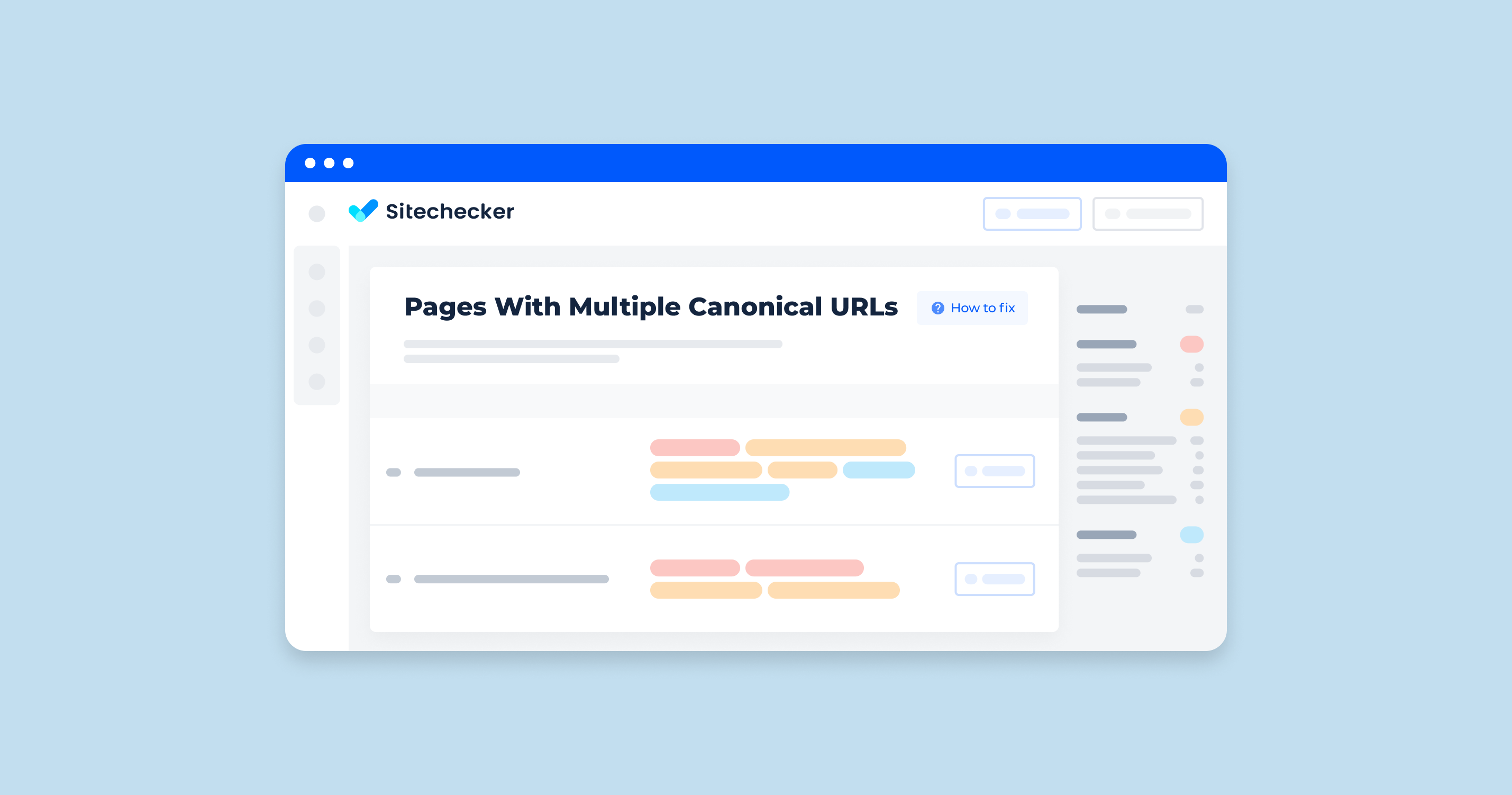What Does the “URL Multiple Parameters” Issue Mean?
In a site audit, the “URL Multiple parameters” issue refers to web addresses on your website that contain multiple query strings. These parameters are often used in links to pass information to the server, typically for dynamic content or filtering purposes.
However, having multiple arguments in URLs can cause several issues:
Duplicate Content
Search engines might treat URLs with different parameters as separate pages, leading to duplicate content issues. This can dilute the SEO value of your pages and negatively impact your site’s ranking.
Crawl Budget
Search engines have a limited amount of time to crawl your site. If they spend too much time crawling multiple parameterized hyperlinks, they might miss other important pages, leading to inefficient use of your crawl budget.
Complex URLs
URLs with many arguments can be difficult for users to read and share. They are also more prone to errors when manually entered or copied.
Link Equity Dilution
When multiple URLs lead to the same or similar content, the link equity (ranking power) can be diluted across these links rather than being consolidated on a single web address.
What Triggers This Issue?
The “URL Multiple parameters” issue can be triggered by several factors related to how your website generates and handles hyperlinks. Here are some common triggers:
- Dynamic Content Generation: Websites that generate content dynamically based on user input (e.g., search queries, filters) often use multiple parameters in URLs to pass this information to the server.
- E-commerce Filters and Sorting: E-commerce sites frequently use multiple query strings for product filtering, sorting, and pagination (e.g., ?category=shoes&color=red&size=10&sort=price_asc).
- Session Tracking: Some websites append session IDs or tracking information to URLs as query parameters, resulting in multiple arguments (e.g., ?sessionid=12345&utm_source=newsletter).
- Tracking and Analytics: Use of UTM parameters and other tracking codes in URLs for marketing and analytics purposes (e.g., ?utm_source=google&utm_medium=cpc&utm_campaign=spring_sale).
- Pagination: Pages that use query strings to manage pagination (e.g., ?page=2&sort=recent) can add multiple parameters to the URL structure.
- Complex Filters: Advanced search features that allow users to apply multiple filters simultaneously often lead to URLs with multiple parameters.
- Web Application Frameworks: Some web frameworks and content management systems (CMS) may generate URLs with multiple parameters by default, depending on their configuration.
- User-Generated Content: Sites that allow user-generated content, such as forums or blogs, might use multiple parameters to manage comments, replies, and user interactions.
How to Check if There are Multiple Parameters in the URL?
To check this issue, you need to take a look at the URL itself. The query starts with a question mark (?). Then, each parameter is divided by an ampersand (“&”). Count these elements, and you’ll have the answer.
The Sitechecker SEO tool provides a detailed look into various technical aspects that might affect your website’s search engine rankings. In this particular section of the site audit, the focus is on identifying URLs that have more than three parameters. This specific check is crucial because hyperlinks with excessive parameters can complicate search engine crawling, potentially leading to issues with indexing or duplicated content.
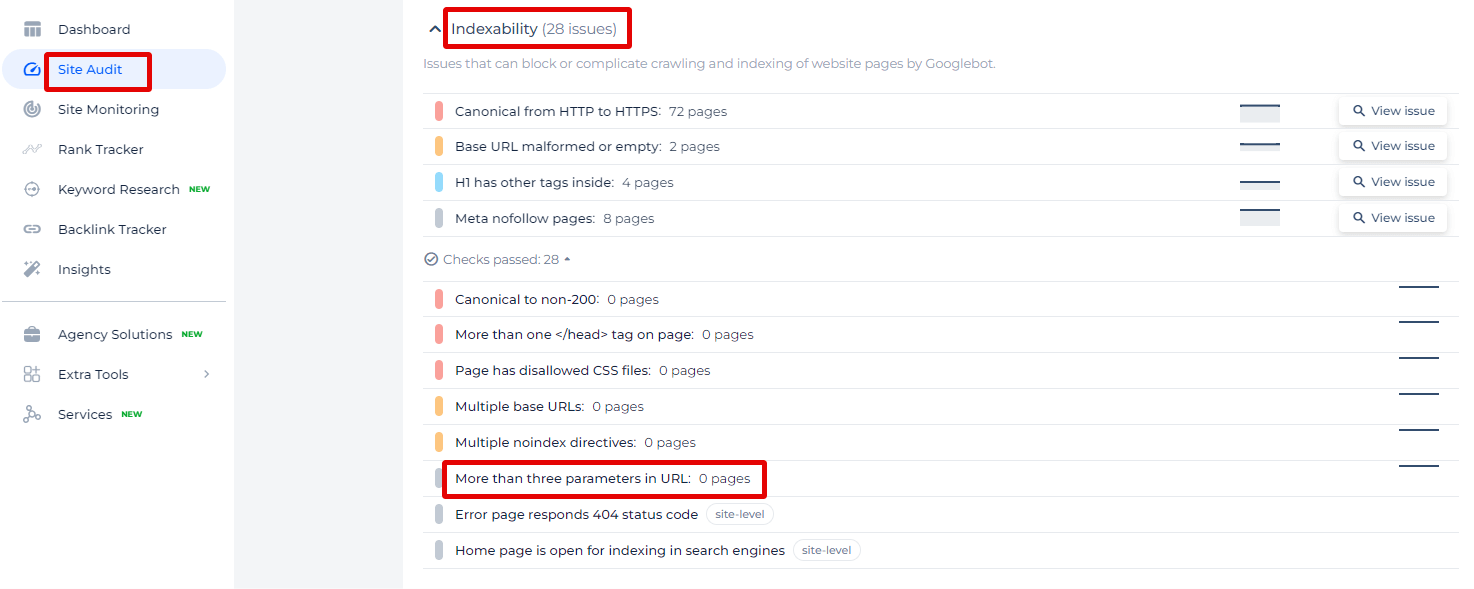
By clicking on the “View issue” link, users can see a comprehensive breakdown of each page that fails this check, along with suggestions for improving the URL structure.
Enhance Site Performance with URL Audit!
Detect URLs with excessive parameters that might be confusing search engines.
Why is This Important?
First, these elements aim at helping people filter and organize content or track information on their websites. For example, parameters assist in tracking traffic sources with the help of UTM metrics.
Second, parameters directly impact site crawling and indexing by Google. Multiple arguments may cause negative issues during site scanning since there can be some meaningless pages for a search engine to check. As a result, multiple parameters may lead to a waste of the crawling budget.
Last but not least, multiple arguments may also cause duplicated content. This negatively impacts both indexings by the system and the behavior of site visitors.
How to Fix the Issue?
To fix the “URL Multiple parameters” issue, you can follow a combination of technical and strategic approaches. Here are some effective methods to address and mitigate the problem:
1. Canonicalization
Use canonical tags to indicate the preferred version of a URL to search engines. This helps consolidate duplicate content signals.
Implementation: Add a <link rel=”canonical” href=”https://www.example.com/preferred-url” /> tag to the HTML head section of your pages.
2. URL Rewriting
Simplify web addresses by rewriting them to remove unnecessary parameters or by combining them in a more user-friendly format.
Implementation: Use server-side URL rewriting tools (e.g., .htaccess for Apache, URL Rewrite Module for IIS) to create cleaner hyperlinks.
RewriteEngine On
RewriteCond %{QUERY_STRING} ^id=([^&]+)&cat=([^&]+) [NC]
RewriteRule ^product$ /product/%1/%2? [L,R=301]
3. Parameter Handling in Google Search Console
Specify how different parameters affect the content of your site using the URL Parameters tool in Google Search Console. This helps Google crawl your site more efficiently.
Implementation: Go to Google Search Console > URL Parameters, and define how each parameter should be handled (e.g., “URL doesn’t change content” or “URLs with this parameter should be crawled”).
4. Consistent Internal Linking
Ensure that your internal linking structure uses clean links without unnecessary parameters. This helps search engines and users navigate your site more efficiently.
Implementation: Audit your internal links and update them to use the preferred URL format without extra query strings.
5. Use of Cookies for Tracking
Instead of appending tracking information to URLs, use cookies or other methods to track user sessions and activity.
Implementation: Update your tracking scripts to store tracking information in cookies rather than web link parameters.
6. Avoid Session IDs in URLs
Configure your server to handle session management without relying on session IDs in the URL.
Implementation: Use cookies to store session information and configure your web server or application framework to use these cookies for session management.
7. Merge Parameters
Combine parameters that serve a similar purpose or that can be logically grouped together.
Implementation: Simplify complex URLs by merging related parameters into a single parameter or using a more structured URL format.
8. Remove Unnecessary Parameters
Identify and remove any parameters that do not significantly alter the content of the page.
Implementation: Audit your URL parameters and remove or consolidate those that are redundant or unnecessary.
9. Pagination Handling
Ensure that pagination URLs are correctly handled to avoid duplicate content issues.
Implementation: Use the rel=”prev” and rel=”next” tags to indicate paginated content and prevent indexing of duplicate pages.
Example Implementation of Canonicalization and URL Rewriting
Canonical Tag Example
<head>
<link rel="canonical" href="https://www.example.com/products/shoes" />
</head>
URL Rewriting Example (Apache .htaccess)
RewriteEngine On
RewriteCond %{QUERY_STRING} ^category=shoes&color=red&size=10&sort=price_asc [NC]
RewriteRule ^products$ /products/shoes/red/size-10/sort-price-asc? [L,R=301]
